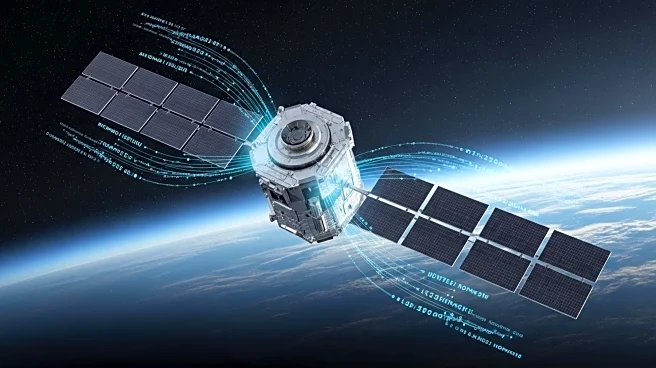What's Happening?
Researchers from the University of California, San Diego, and the University of Maryland have discovered that communications from cellphone carriers, retailers, banks, and militaries are being broadcast unencrypted through geostationary satellites. Using a simple setup costing $750, the researchers scanned 39 satellites and found that roughly half of the signals were transmitting unencrypted data. This exposed sensitive information such as phone calls, military logistics, and retail inventory. The study highlights a mismatch between expected and actual data security practices among satellite customers.
Why It's Important?
The findings raise significant concerns about data security and privacy, as unencrypted satellite transmissions can expose sensitive information to potential interception. This has implications for industries relying on satellite communications, including telecoms, military, and retail sectors. The study underscores the need for improved encryption practices to protect data integrity and privacy, especially in remote areas where satellite coverage is essential. Companies may face increased pressure to enhance security measures to prevent data breaches.
What's Next?
Affected organizations have been notified, and some have already implemented fixes to address the security flaws. The researchers have verified that corrections have been made for T-Mobile and Walmart. The study may prompt further investigations into satellite data security and encourage companies to adopt more robust encryption practices. Regulatory bodies might also consider new guidelines to ensure data protection in satellite communications.
Beyond the Headlines
The study highlights the economic and operational challenges of implementing encryption in satellite communications. While encryption can be costly and impact service efficiency, the risks of unprotected data transmission may outweigh these concerns. The findings could lead to a reevaluation of security priorities in industries dependent on satellite technology.











